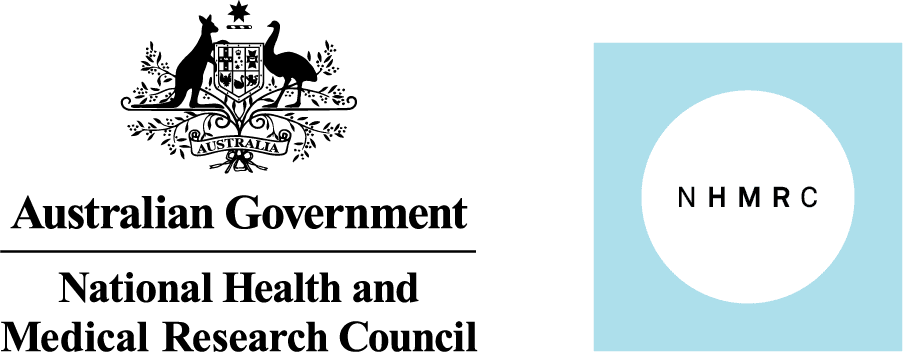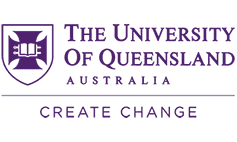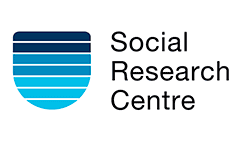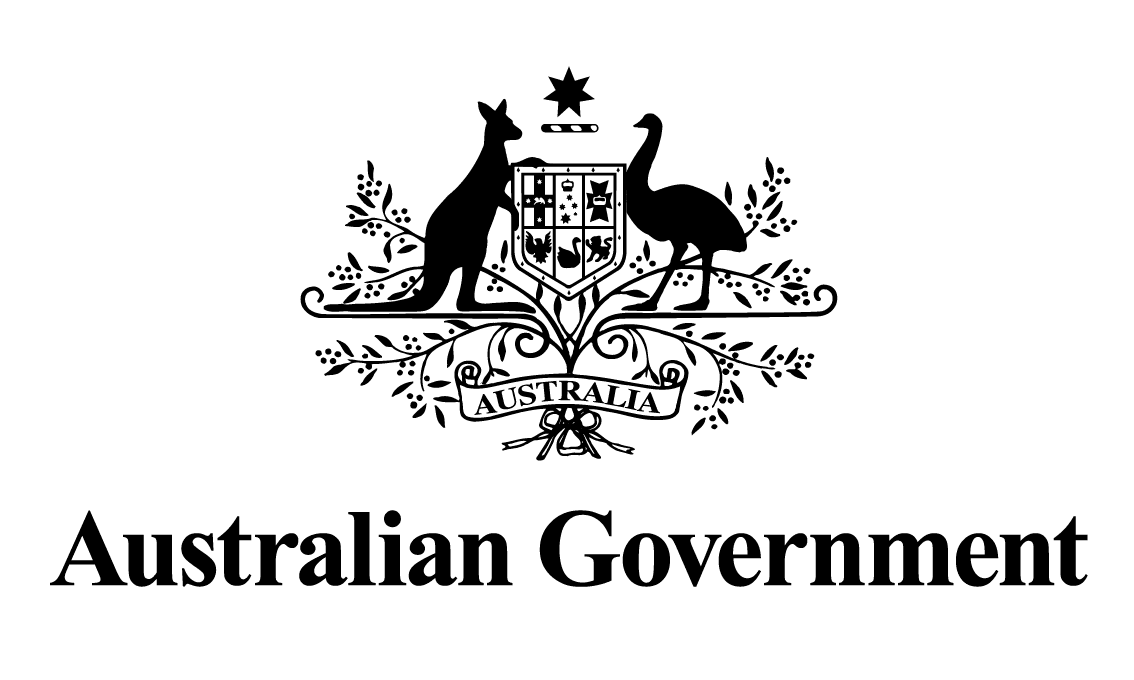



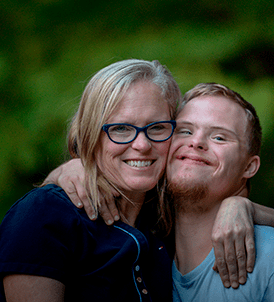

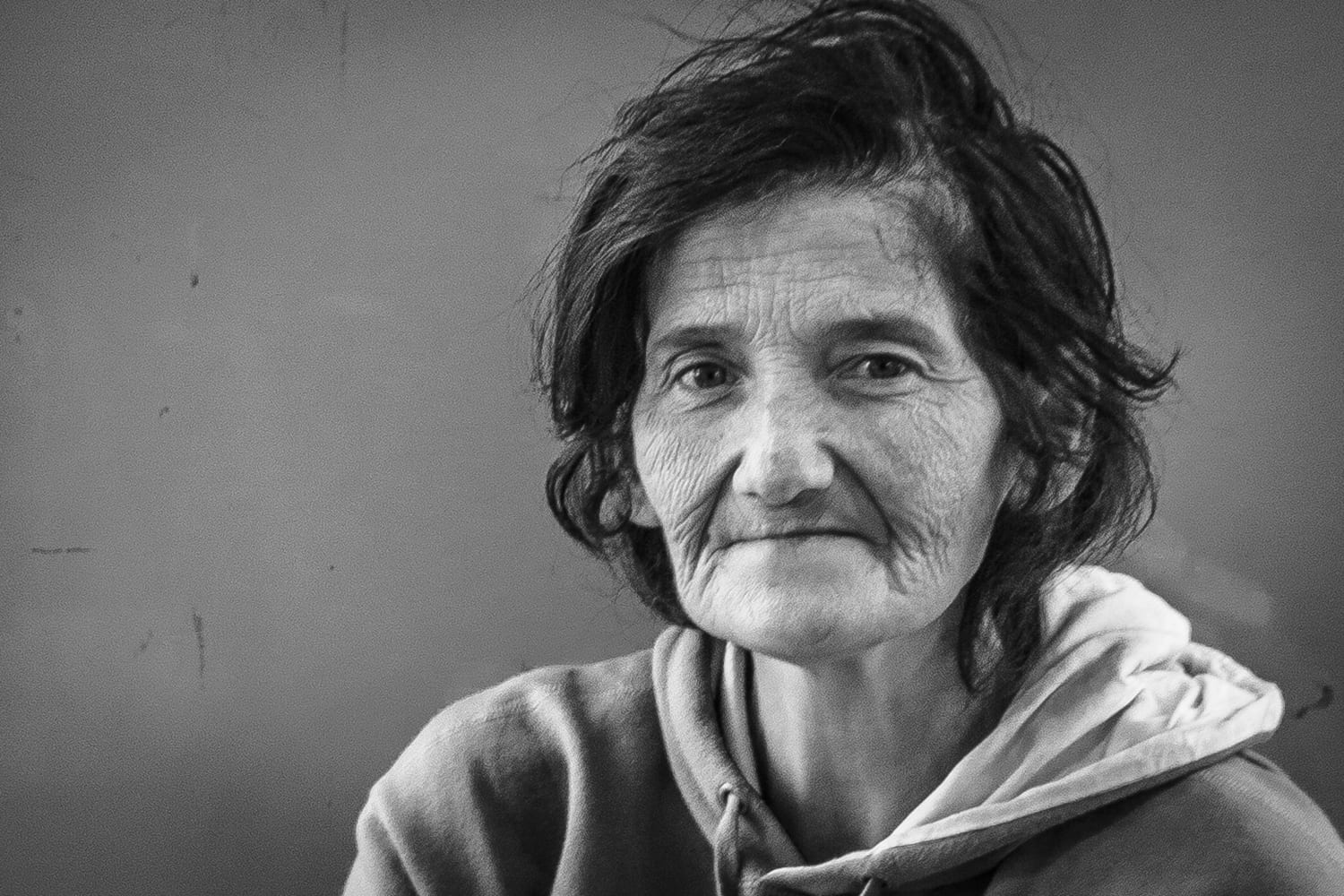
This study is important in obtaining for the first time accurate baseline data about the number of Australians who have experienced child abuse and neglect. Equally importantly, it will provide important information about the nature of abuse, such as the age at which it occurs, who inflicts the abuse, and other contextual patterns. This information can be used in the future to develop more effective ways to prevent and reduce child maltreatment using policy and practice initiatives
THE IMPACT OF CHILD ABUSE AND NEGLECT
Child abuse and neglect has a significant negative impact on people who experience it. Its influence extends far beyond the trauma it may inflict during childhood and can impact an individual throughout the whole course of their lives, including their physical and mental health, their adult relationships, and other aspects fundamental to a person’s well-being. Reducing the number of children who experience abuse and neglect will not only protect Australia’s children but will also contribute to a healthy well-functioning society and reduce costs.
WHAT IS THE ACMS?
The Australian Child Maltreatment Survey is the first nationally representative prevalence study of child abuse and neglect ever conducted in Australia.
It will examine, for the first time, how many Australians experienced child abuse and neglect and other childhood adversities, and the impact of this on their physical and mental health over the lifespan. It will also assess the burden of disease and estimate the costs associated with maltreatment.
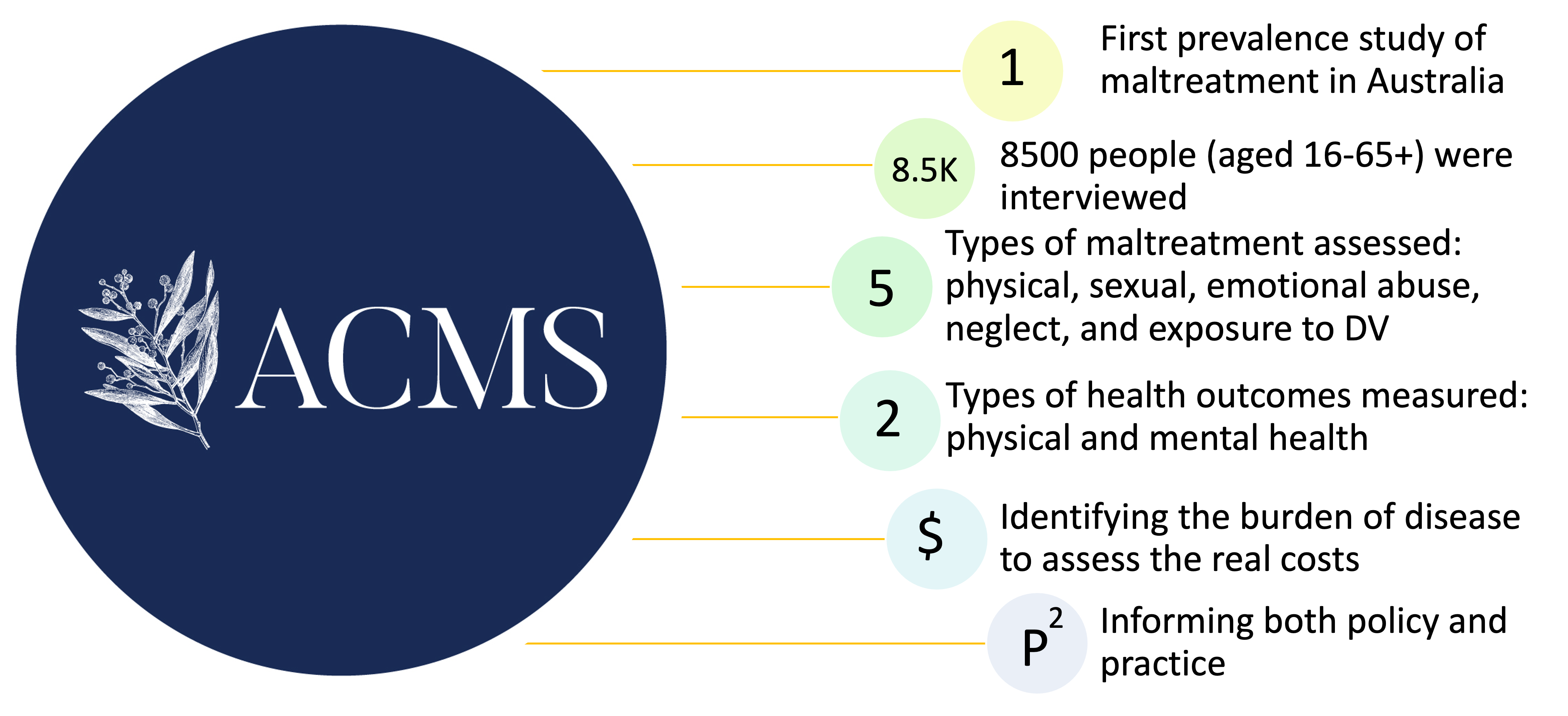
WHY IS THIS STUDY SO IMPORTANT?
- No representative data currently exists on how many Australians experience abuse and neglect. Current estimates based on child protection data vastly underestimate the extent of the problem and, by extension, the costs of abuse and neglect on the Australian society and economy.
- However we do know that far too many Australian children experience child abuse and neglect and other forms of childhood adversity.
- Without accurate data it is impossible to identify what policy and practice changes are needed to best protect Australian children.
- This study will provide critical insights about which children are most at risk of abuse and neglect, when, where, and by whom. This detailed information is needed to develop effective policy and prevention initiatives and early intervention opportunities.
- Early adverse life experiences have a significant and lasting long term negative impact on the lives and outcomes of individuals and cost Australian billions of dollars.
- This study will also determine how child maltreatment increases the risk of later physical and mental health problems, thus providing insight into potential health and costs savings of reducing maltreatment.
- Reducing child maltreatment will have a significant positive impact on the mental and physical health of Australians. A recent Productivity Commission report found mental health problems cost Australia approximately $139 million every day ($51 billion annually). Reducing child abuse and neglect would result in substantial savings in long-term mental health.
Key facts
- The project is led by Professor Ben Mathews at the Queensland University of Technology, and the team includes 9 leading investigators from across Australia, the United Kingdom and the USA.
- The ACMS will survey 8500 Australians ages 16-65 and older across all States and Territories. This will include 5000 youth aged 16-24, which allows repeat studies to be conducted to determine whether child abuse and neglect is decreasing over time. As well as 3500 people aged 25-65 and older, with 1000 people in each 10 year age cohort (25-34, 35-44 etc).
- The results will show how many Australians have suffered from the five types of maltreatment (sexual abuse, physical abuse, emotional abuse, neglect, and exposure to domestic violence), as well as how many were exposed to multiple forms of abuse and/or other adverse childhood experiences (ACES).
- The results will reveal associations between child abuse and neglect and later life outcomes including mental health (depression, post-traumatic stress disorder, generalized anxiety disorder, alcohol use disorder), physical health (diabetes, cardiac conditions, obesity) and other socioeconomic outcomes such as income and education.
- The survey will also assess the burden of disease attributable to child maltreatment, in terms of life-years lost to maltreatment and how many years people live with a disability-related to maltreatment exposure.
- Economic analysis will reveal Australian healthcare costs associated with maltreatment.
- The study is supported by $2.3 million of funding from the National Health and Medical Research Council (APP1158750) with additional funding from the Australian Government and Queensland University of Technology. The Queensland University of Technology Human Research Ethics Committee granted ethical approval for this study in August 2019 (1900000477).
What can I do?
- Australian children need advocates for their protection. Speak out against child abuse and neglect.
- Be informed about the importance and impact of the Australian Child Maltreatment Study (ACMS) and the implications of this for potential policy change. Contact the research team if you would like more information, or if you would like to engage with the team.
- Recommend policy and budget changes to provide evidence-informed protection for our children.
- Once the ACMS results are released, share the findings with appropriate policy, community, and scientific audiences.
- Fund and co-partner in future research and practice in this area.
- Contact the research team on acms@qut.edu.au for more information or policy briefs, or to request comment or presentations.
See full presentation about the ACMS by Lead Investigator Professor Ben Mathews.
This video was recorded during a seminar hosted by the Department of Health and Human Services Victoria in late 2019. The video is shown here with full permission from the Department and their effort in creating the video and hosting the seminar is gratefully acknowledged. A transcript can also be downloaded here.
Our partners
The ACMS is proud to partner with the National Health and Medical Research Council, The Social Research Centre, and the Australian Government on this important project. For more information about our partners please click here.



